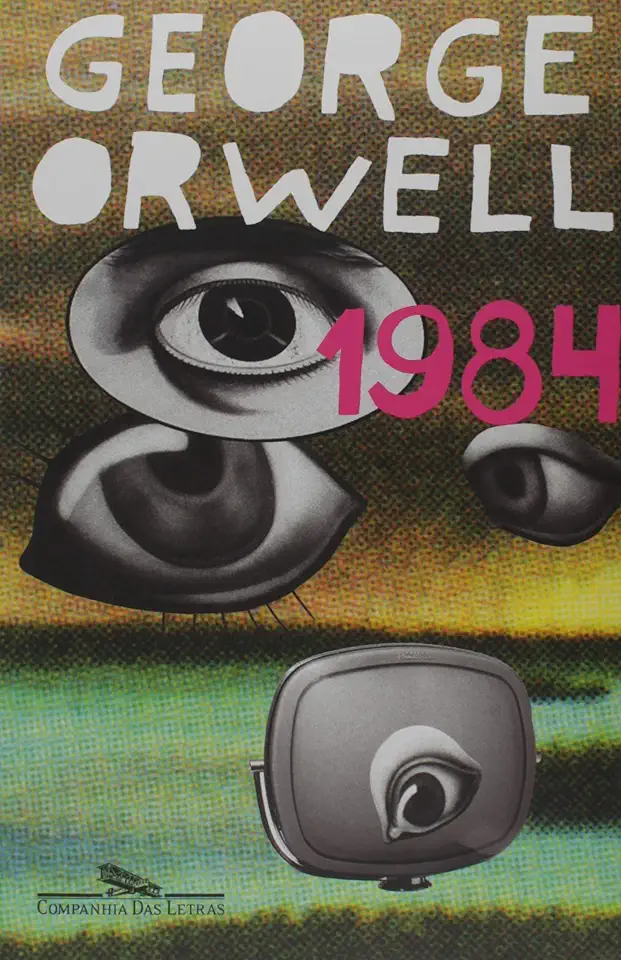
1984 – George Orwell
1984: A Timeless Masterpiece of Dystopian Literature
In a world where truth is manipulated, freedom is an illusion, and individuality is suppressed, George Orwell's "1984" stands as a haunting and prophetic masterpiece of dystopian literature. Published in 1949, this novel has captivated readers for generations with its chilling portrayal of a totalitarian society where the government controls every aspect of human life.
A Glimpse into a Dystopian Future
"1984" transports readers to a future where the world is divided into three superstates: Oceania, Eurasia, and Eastasia. Oceania, the setting of the novel, is ruled by the all-powerful Big Brother, a symbol of absolute authority and surveillance. The Party, the ruling political party, controls every aspect of society, from language to thought.
Winston Smith, the protagonist of the novel, is a low-ranking member of the Party who works in the Ministry of Truth, where he rewrites historical records to align with the Party's ever-changing narrative. Despite the omnipresent surveillance and propaganda, Winston harbors a secret desire for freedom and individuality.
The Power of Language and Thought Control
One of the most striking aspects of "1984" is Orwell's exploration of language and thought control. The Party uses Newspeak, a simplified and restricted language, to limit the expression of subversive ideas. Words like "freedom" and "democracy" are eliminated, and complex thoughts become impossible to articulate.
The Party also employs the Thought Police, a secret force that hunts down and punishes anyone who dares to think independently. Winston's diary, a symbol of his inner rebellion, becomes a dangerous possession that could lead to his capture and vaporization.
The Struggle for Individuality and Love
Amidst the oppressive atmosphere of "1984," Winston finds solace in his love for Julia, a fellow Party member who shares his desire for freedom. Their secret relationship becomes a symbol of resistance against the Party's control over human emotions and desires.
However, their love is doomed in a society where individuality is crushed and personal connections are seen as a threat to the Party's power. Winston and Julia's rebellion ultimately leads to their downfall, but their brief moments of happiness serve as a poignant reminder of the human spirit's resilience in the face of oppression.
A Warning for Our Time
"1984" is not merely a work of fiction; it is a cautionary tale that resonates deeply with our contemporary world. Orwell's novel serves as a warning against the dangers of totalitarianism, surveillance, and the erosion of individual rights.
In an era of increasing government surveillance, fake news, and the manipulation of public opinion, "1984" stands as a timely reminder of the importance of critical thinking, freedom of expression, and the preservation of our democratic values.
Why You Should Read "1984"
"1984" is a must-read for anyone interested in literature, history, or the human condition. It is a powerful and thought-provoking novel that will stay with you long after you finish reading it.
Here are a few reasons why you should read "1984":
- It's a classic work of literature. "1984" is considered one of the greatest novels of the 20th century and is widely taught in schools and universities around the world.
- It's a cautionary tale about the dangers of totalitarianism. Orwell's novel offers a chilling glimpse into a future where individual freedom is suppressed and the government controls every aspect of life.
- It's a thought-provoking exploration of language and thought control. Orwell's novel shows how language can be used to manipulate people's thoughts and control their behavior.
- It's a powerful reminder of the importance of freedom and individuality. "1984" is a reminder that we should never take our freedom for granted and that we must always fight for our right to think and express ourselves freely.
If you haven't read "1984," I highly recommend that you do. It is a powerful and unforgettable novel that will stay with you long after you finish reading it.
Enjoyed the summary? Discover all the details and take your reading to the next level — [click here to view the book on Amazon!]